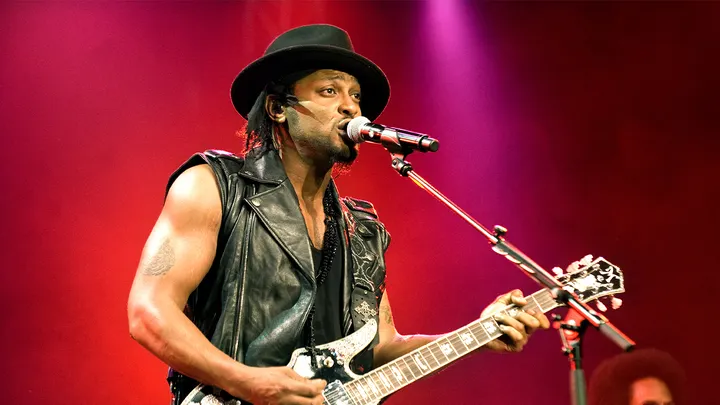The music world is grieving after the death of Grammy-winning neo-soul legend D’Angelo, who passed away at 51 following a battle with pancreatic cancer. His family confirmed the news, sharing heartfelt words about a man whose art reshaped R&B and whose spirit transcended genre.
“The shining star of our family has dimmed his light for us in this life,” his family said in a statement. “We are eternally grateful for the legacy of extraordinarily moving music he leaves behind.”
A Pioneer of Neo-Soul
Born Michael Eugene Archer in Richmond, Virginia, D’Angelo rose to prominence in the mid-1990s with his debut album Brown Sugar (1995). The record signaled the rebirth of soul music, blending gospel roots with hip-hop grooves, sensual vocals, and live instrumentation. Songs like “Lady” and the title track introduced a sound that was both classic and entirely new.
D’Angelo became a central figure in the neo-soul movement, alongside artists like Erykah Badu, Maxwell, and Lauryn Hill. His music was deeply spiritual, politically aware, and emotionally raw. Every chord felt intentional, every lyric carried weight.
The Genius of “Voodoo” and His Cultural Legacy
With his 2000 masterpiece Voodoo, D’Angelo changed the shape of R&B. The album fused funk, jazz, and blues with the experimental looseness of a live jam session. Produced with the Soulquarians collective, it delivered timeless tracks such as “Untitled (How Does It Feel)” and “Devil’s Pie.”
That iconic “Untitled” music video made him a reluctant sex symbol, but D’Angelo’s artistry always went deeper. His music explored vulnerability, masculinity, and faith in ways that defied mainstream expectations.
After years away from the public eye, he returned in 2014 with Black Messiah, an urgent and politically charged record that spoke to racial injustice and modern unrest. The album’s message still resonates today, reminding listeners that soul music can carry both healing and resistance.
The Man Behind the Music
Behind his brilliance was a man who wrestled with fame, image, and personal struggle. Friends and collaborators described him as introspective, eccentric, and deeply spiritual. He preferred solitude to celebrity, and his perfectionism often kept him out of the spotlight.
Though he faced battles with substance abuse and weight fluctuations, D’Angelo’s artistry never faltered. His sound inspired a generation of artists including Anderson .Paak, Frank Ocean, H.E.R., and Leon Bridges.
A Lasting Light
D’Angelo’s passing comes seven months after the death of his former partner, soul singer Angie Stone, with whom he shared a son. He is survived by three children.
His music remains timeless, an archive of emotion, rhythm, and truth. D’Angelo did not just make songs; he built a sanctuary for listeners who needed to feel something real.

